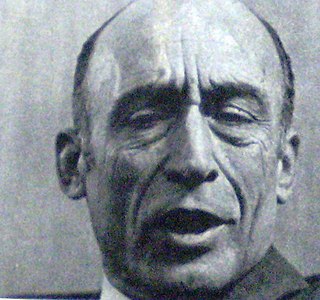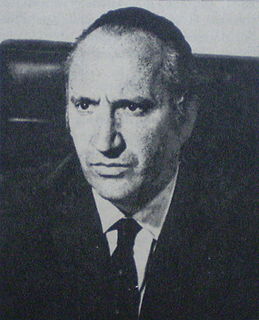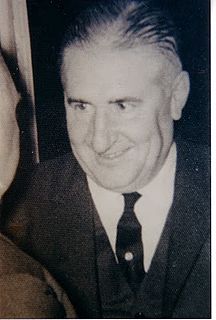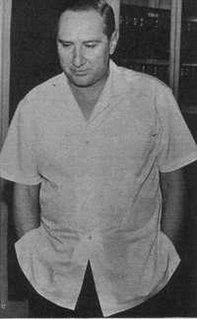
Arturo Umberto Illia Francesconi was an Argentine politician and physician, who was President of Argentina from 12 October 1963, to 28 June 1966. He was a member of the centrist Radical Civic Union.

José María Guido was the 33rd President of Argentina. His term lasted from 30 March 1962 to 12 October 1963.

Pedro Eugenio Aramburu Silveti was an Argentine Army general. He was a major figure behind the Revolución Libertadora, the military coup against Juan Perón in 1955. He became 31st President of Argentina from November 13, 1955 to May 1, 1958. He was kidnapped by the radical organization Montoneros on May 29, 1970 and murdered, allegedly in retaliation for the June 1956 execution of General Juan José Valle, an army officer associated with the Peronist movement, and 26 Peronist militants after a botched attempt to overthrow his regime.

The General Confederation of Labor of the Argentine Republic is a national trade union federation in Argentina founded on September 27, 1930, as the result of the merger of the USA and the COA trade unions. Nearly one out of five employed - and two out of three unionized workers in Argentina - belong to the CGT, one of the largest labor federations in the world.

The Intransigent Radical Civic Union was a political party of Argentina.

The Argentine general election of 1963 was held on 7 July. Voters chose both the President and their legislators; with a turnout of 85.6%, resulting in the election of Arturo Illia as President of Argentina.

José Alonso was an Argentine politician and trade-unionist.

Rogelio Julio Frigerio was an Argentine economist, journalist and politician.

The first Argentine general election of 1973 was held on 11 March. Voters chose both the President and their legislators and with a turnout of 85.5%, it produced the following results:

Lorenzo Miguel was a prominent Argentine labor leader closely associated with the steelworkers' union.
The Argentine legislative elections of 1962 was held on 18 March. Voters chose their legislators and governors; with a turnout of 85.7%, it produced the following results:
The Argentine legislative elections of 1960 was held on 27 March. Voters chose their legislators, and with a turnout of 87.1%, it produced the following results:
The Argentine Constituent Assembly election of 1957 was held on 28 July. Voters chose delegates to the assembly, and with a turnout of 90.1%, it produced the following results:

Carlos Raúl Contín was an Argentine politician and leader of the centrist Radical Civic Union (UCR).

Popular Union is a political party in Argentina rooted in Peronism and a current of Justicialist Party. Established by Juan Atilio Bramuglia as both a contingency for Peronists displaced by the 1955 military coup against the populist President Juan Perón, it became a "neo-Peronist" alternative to the exiled leader's line, and subsequently, an alternative to the successive dominant factions in the Justicialist Party. The UP re-emerged as a political force during the 2011 elections, when it was adopted as a vehicle by Eduardo Duhalde ahead of the Federal Peronist primaries on August 14.



















